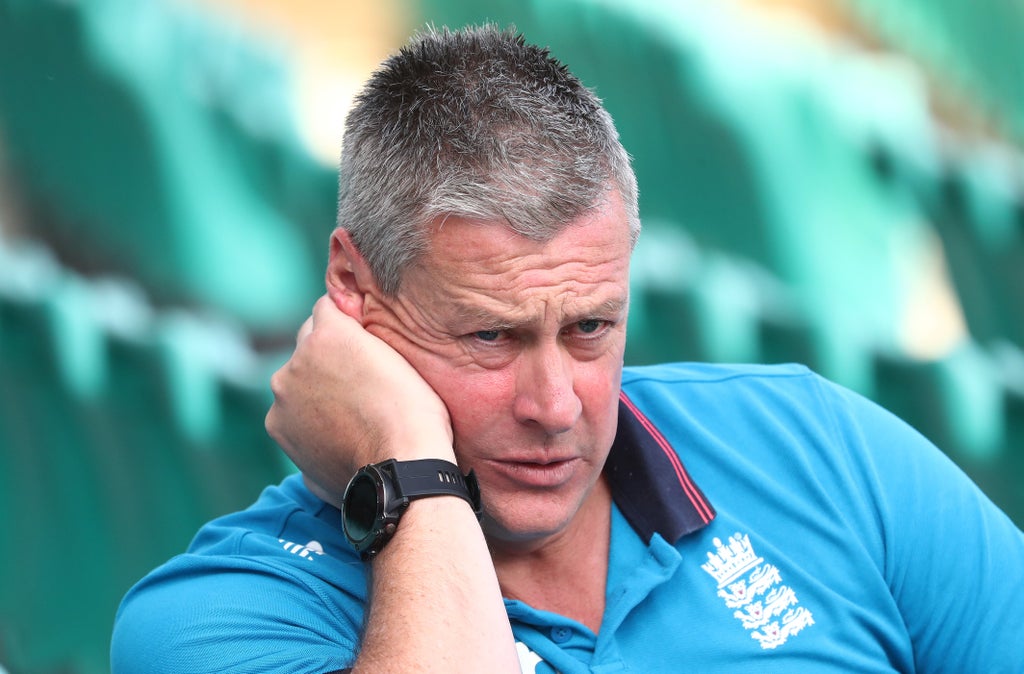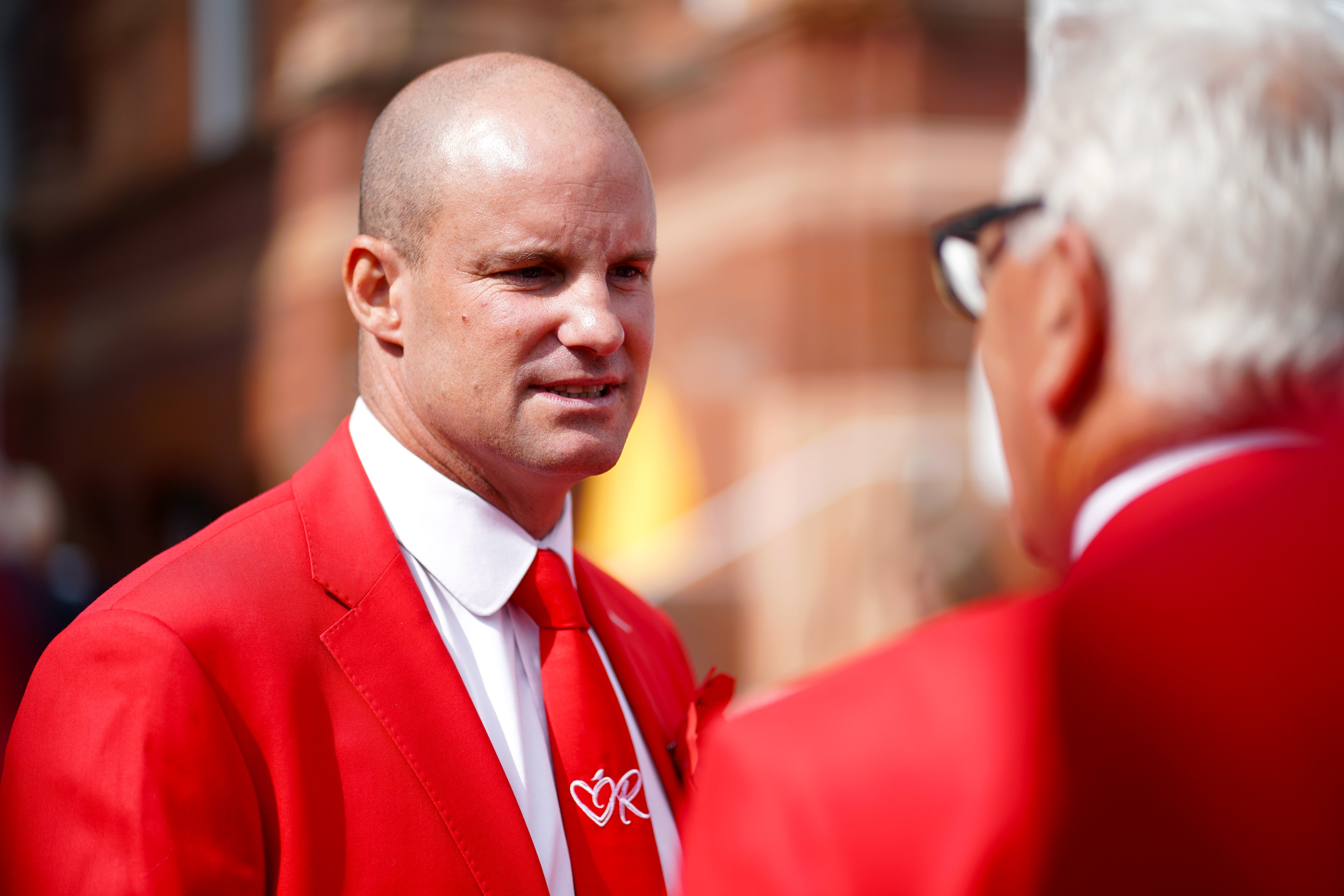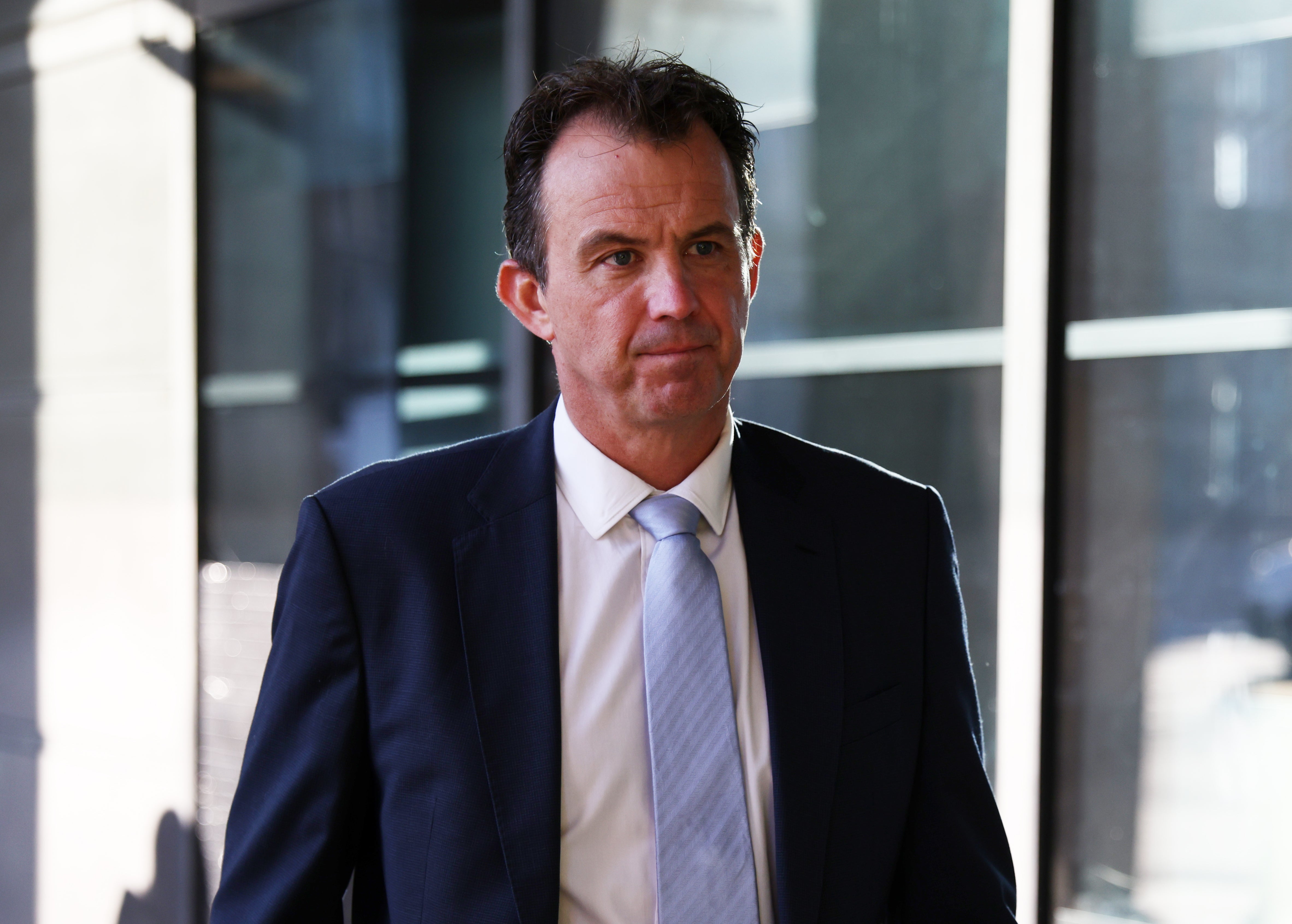
And so it begins. At 7pm on Wednesday evening, Ashley Giles became the first to fall as the ECB began cleaning house following the abomination of the Ashes, and a comically bad 2021 in Test cricket.
The first whispers came through 24 hours earlier after the England and Wales Cricket Board had met to pore through the wreckage of England’s 4-0 defeat. By the morning, Giles had been informed by chief executive Tom Harrison that this was the end. The statement released hours later stated he had stepped down as managing director of the England men’s cricket team. No doubt with a helping push.
His three years in charge certainly has not been a success. Whatever glory during this period – and there has not been much – only carries faint smudges of his fingerprints. The 2019 World Cup win and the elevation of the Twenty20 side to number one in the ICC rankings – both mentioned three times in the 333-word exit statement – were the result of a largely self-sufficient white ball side set in motion before his time. Similarly, it is important to remember the Test side’s malaise, with 10 defeats out of 17 since the start of 2021, isn’t solely on him, or head coach Chris Silverwood who is next in line for the chop.
It is also right to state he was hamstrung by spending two-thirds of his stewardship in the guts of the pandemic. Operating alongside Covid-19 did mean a simpler brief of keeping the men’s team on course throughout a relentless schedule, but he found himself that little bit further away from it all. While the role of managing director is more hands-off, working that little more remotely hamstrung his virtues as a sympathetic, straight-talking manager which saw him revitalise Warwickshire from top to bottom as their sport director.
Perhaps the more surprising element was the sense of unrest from some players towards Giles. Surprising because you could argue he was too accommodating to them.

He allowed Test players to miss the Test series against New Zealand at the start of last summer, and afforded them other concessions that included having families out in the United Arab Emirates for the T20 World Cup and at the Ashes. The sacking of Ed Smith in April was also partly governed by issues the national selector had with senior Test players. Even the perceived “drinking culture” over the winter was down to the hierarchy angling for a more relaxed environment after to alleviate the stress of bubbles and restricted living conditions.
Some believe Giles was a little too set in his ways. One source tells The Independent that, at times, he acted like a bouncer to anyone who stood up to him. Some felt he did not like to be challenged on decisions he had made, which goes some way to explaining how he had no qualms in axing Smith. The offshoot of that decision was handing sole selection responsibilities to Silverwood – another cross against his name.
No doubt he will feel hard done by right now, not least because his interim replacement Sir Andrew Strauss, who he came in for originally, is the one overseeing the review into the disastrous Ashes. Giles last act was to submit a report on the disastrous Ashes to Strauss who evidently feels he is the man to affect this necessary reset.

At another time, that process might garner more scrutiny. But at such a low ebb, Strauss’s previous success revolutionising the limited overs set-up is too great to ignore. Quite how that translates to the longer form, only time will tell. But the former England captain had been touted for a return ever since he had to step away in 2018 to care for his late wife, Ruth.
The 44-year-old has gradually returned to cricket. He is currently chair of the ECB cricket committee and was a presence in board meetings in a non-voting capacity. Originally the expectation was he would assume the ECB chair role vacated by Ian Watmore last October. That may still come to pass, though being that little bit closer to the action may convince Strauss that reprising his directorship and turning the Test side around is more appealing.
He would no doubt be given far more autonomy in the role and have the benefit of working as cricket emerges out of the pandemic. Even with his time away, his links to the team remain as strong as ever, with many believing he is the antidote to the current woes.

It seems Strauss’s first order of business will be to relieve Silverwood of his duties. Though the ECB statement made no mention of Silverwood’s position, it did state that Strauss “will put in place arrangements for the forthcoming West Indies tour”. A squad will be announced next week, but a decision on who will lead the group out of the Caribbean will come sooner.
And so Giles, as well as being the first to go, is likely to be the highest placed of the collateral. It begs a question as to how culpable Harrison is in all this. The man who made these appointments, oversaw this malaise and sits astride a game in disrepair and disrepute on both sides of the boundary, will seemingly remain in situ for the time being.
It is likely Harrison will move on later this year, after pocketing his share of the £2.1m executive bonus. But having triggered the fall of the dominoes, English cricket and those who care deeply about it will feel it is only right he turns the finger on himself.







